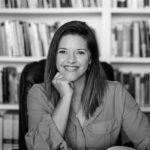I know a family that just changed churches. You see, their church’s leadership, along with some significant portion of its membership, became openly antagonistic to this family’s choice of school. Evidently, in the view overwhelmingly represented in that church, Christian families should educate their children in one specific way. My guess is that this sentiment isn’t too uncommon — though the preferred approach to education varies. Many parents and grandparents feel strongly about the best way to do education, and certainly the stakes remain high.
Broadly speaking, parents choose to educate their children in one of three ways: public school, Christian school, or homeschool. (Yes, other models exist.) In what follows, I talk to three parents, each of whom are educators in their own rights, about the kinds of schooling that best fit not just individual children, but the Christian calling in the world. —Aaron Cline Hanbury
Participants
Each of you argue for a different approach to education — public, Christian classical, and at-home. Can you explain why?
Jason Dees: Christians cannot abandon public schools for many reasons, but here are three: Connection to our neighbors (with the hope of evangelism), Christian education for our children, and the general flourishing of our communities.
Connection to our neighbors. There is no institution that connects people in a local community like a public school — they become the default community center of an area. If Christians are called to be salt and light, we are missing a massive opportunity to be a part of our own local communities if we abandon our local public schools.
Christian education for our children. Christian parents must be committed to in-home discipleship, whether their children are in public school, in private school, or homeschooled. After 20 years of pastoring thousands of families, I am convinced that in-home family discipleship is richer when your children are exposed both to a church community and to a secular community. Christians need both inward facing relationships and outward facing relationships for true Christian growth, even young Christians. When children are exposed to darkness, it actually helps them understand and, if they are saved, may even help them desire the light.
General flourishing of communities. I believe that the Great Commandment of our Lord, to love our neighbor, implies that Christians should seek the flourishing of our neighbors. If a public school can have even 25 to 30 percent of its parents engaged, involved, volunteering, and giving to the school, that can dramatically improve the quality of the education in that particular school. We have seen that in our own school, where the opportunities for all of the students have been dramatically influenced by a relatively small percentage of involved parents. If all of the wealthy Christian families (those who can afford private schools) abandon the public schools, we take those resources away from communities that could be dramatically helped by them.
Jessica Hooten Wilson: My first job out of college was teaching fourth grade at a classical school — Covenant Classical School in Fort Worth, Texas. This was in 2004. The school was meeting in a church building. My sister mocked it as not a “real” school because it was a start-up, and that was still a new phenomenon. In 2024, the school boasts almost 500 students, has a beautiful campus of its own, and I was privileged enough to be its commencement speaker in 2022. The story has been the same all over America and now spreading across the world: These start-ups are alternative havens when public school has failed to provide real education.
Classical education is a return to the ways education worked for hundreds of years: Memorize things worth knowing, read books worth treasuring, discuss enduring questions and great ideas, be hands-on in science and maths, understand human history across the whole world from the Fall to now, prioritize languages (especially Latin and Greek in the West as foundational to those cultures). Pedagogically, the goals are to encourage students to love and desire what is good and beautiful, to work with students as individuals who learn at different rates and in different ways, and to see vocation as life-long, not merely restrained to jobs. We talk about who students are as embodied souls and who they are meant to become (in the Christian setting, they are meant to be saints; in the sectarian schools, they are meant to be philosopher queens and kings). At its best — in its ideal form — classical education does a few things really well: learning communally and relationally, treating learning as leisure (with rest, vigor, and desire in proper places and times), and seeing each person as a souled creature in the process of reaching its highest end.
Angel Adams Parham: I never imagined that I would homeschool. I’m the product of public school — from beginning to end. But once I had my daughters, their education became one of the most important commitments of my life. I bought my first homeschool curriculum when my oldest daughter was two years old, and it was a delight to see her mind light up as we learned together. Fast forward three years later, I sat at our tiny children’s table with both daughters — two and five years old — and we enjoyed stories, memorized poetry, read scripture, and prayed together. I could not imagine another way.
I feel prepared to say that all Christians should embrace homeschooling. I encourage new parents, in particular, to at least consider whether homeschooling might be an option, especially with so many new hybrid programs available. While I know that homeschooling is not possible for everyone, what I push back against is the unquestioned assumption that we must follow the usual pathway of enrolling our children in school. This is not to malign any particular school — after all my daughters are now enrolled in one and have been blessed there. It is, however, to say that there are innumerable blessings in the choice to mold our children’s minds, characters, and faith first at home.
And, Angel, you homeschooled while teaching at Loyola University. How were you able to make that work?
Angel Adams Parham: It worked, in part, because we chose to live in a neighborhood that was a 15-minute bike ride from the college. Consider the typical American commute — hours spent in traffic or on a bus or train getting to and from work. I did all our new lessons in about two and a half hours per day, then left assignments for the girls to complete. We had a network, including my husband, church members, and other homeschool moms, who oversaw the girls’ assignments while I was at work. While others commuted, I spent the best time of my girls’ childhoods at home teaching them. I did this for 13 years before new life circumstances made enrolling the girls at a Christian school the best choice for our family. But even now, I refuse to give up our shared morning time of praying, Scripture reading, and literature. This is where we have wonderful, formative conversations about faith and life.
Jason, you see public schools as helping prepare Christian students for life in the world. Can you explain that?
Jason Dees : I think that Christians (and people in general) either tend toward isolation or assimilation. They either isolate from the broader culture or assimilate into the broader culture. I believe Christians are called to be distinctively present in our age. This means that we are neither called to assimilate and take on the ethics of our time, nor to isolate and totally withdraw. I think we can teach our children this present distinctiveness from an early age as we disciple them toward being salt and light in their schools.
Children actively learn to recognize the distinctive beauty of the gospel when we allow them to at times scatter to be with people who are not following Christ, and when they at other times gather to be nurtured in their faith in their homes and churches. This gathering and scattering is a part of what it means to be a Christian. Sadly, what we see among many Christians is an embrace of secular ethics, as they assimilate into the broader world, or the formation of Christian enclaves, where the church is the school and the school is the church. This both damages our families’ ability to reach the broader world for Christ and damages the evangelical discipleship of our children in their younger years.
Angel Adams Parham: I fully agree about the importance of “gathering and scattering,” and of encouraging our children to do both. While many assume that homeschoolers are isolated and kept in a Christian bubble, this is not necessarily the case. Certainly it can and does happen, but it doesn’t have to. In our case, we lived in a mission-oriented way in an inner-city context where we chose to live as part of our church’s community presence. The church worked in the tradition of the Christian Community Development Association, which takes an active stance to live among the least advantaged, to listen carefully to the community, and to share Christ through service. In this case, we and our children were “gathered” with other church families, but also “scattered” in that we were very unlike the majority of the people we were living among. Homeschooling freed us to live radically in this way.
Jessica, how in Christian schools can kids learn to navigate secular spaces?
Jessica Hooten Wilson: “There are no unsacred places; there are only sacred places and desecrated places,” said Wendell Berry. His words have stayed with me because I believe they are true. The world is not divided into secular and Christian arenas. When Christian families choose to enroll their children in faith-based classical schools, they do so for two reasons (in relation to this question in particular): because their local public school has become a desecrated space, and they desire their children to be formed in a sacred community.
If you want your child to be fluent in French, you should send them to a school where all the children and the teacher speak French. We all know that a child who is surrounded by English with only one hour a day in a French class in high school is not going to gain fluency. When it comes to Christianity, we should encourage fluency in the faith.
Jason Dees: I don’t disagree with Jessica (or Wendell Berry) when it comes to sacred and desecrated spaces. In fact, that is part of the project of parenting to teach our children how to strengthen or establish sacred spaces and how to maneuver and impact desecrated spaces. Isolation from the world is simply not faithful to the way of Christ or the commands of Christ. Instead we are called to learn the rhythm of gathering (in sacred spaces like our homes and churches) and to scatter to desecrated spaces (like our neighborhoods, workplaces, gyms, hobby groups, and schools).
I don’t want to give my children a vision of isolation and then when they are 18, expect them to magically be able to maneuver the desecrated or fallen world. In my experience, the majority of children who have been raised in these kinds of environments either abandon the faith of their youth once “released” from isolation, or experience a sort of “rumspringa” and then, thankfully, return but with wounds and oftentimes bitterness toward their parents. By having our children in public schools while they are under our guidance, we are able to teach our children to maneuver the world that they are ultimately going to live in as followers of Jesus.
“While many assume that homeschoolers are kept in a Christian bubble, this is not necessarily the case. We lived in a mission-oriented way in an inner-city context as part of our church’s community presence.”
— Angel Adams Parham
Rightly or wrongly, homeschooling can have a reputation for being anti-society. How can homeschooling prepare students for citizenship?
Angel Adams Parham: I always find this concern quite puzzling. All the homeschoolers I know are involved in co-ops, sports, church groups, and more. How much more socialized can they be? Homeschooling is not “anti-society,” but it can be argued that it is certainly anti-conformity. It takes a certain independence and courage to homeschool — as well as, of course, some sacrifice.
Children see this. They see their parents living out their values, willing to be different from the mainstream. This, I think, is a good thing. Such individuality is, I would argue, a quintessentially American trait, and a wonderful preparation for citizenship. Then too, many homeschoolers are community-minded, and their parents are available to contribute to the work of the community outside the home.
In our case, the fact that we homeschooled meant we could live anywhere and not have to be tied to a certain neighborhood because of the quality of the schools. This freedom meant that we could say yes to building a home in a socially and economically challenging neighborhood where our church sought to make a positive difference. Living in this place for 12 years — the majority of my children’s growing up years — meant that they saw us put our faith into action as we got involved in ministry that directly had an impact on our neighborhood. The message was: We are responsible to love and serve our neighbors. We must care. This is the very epitome of the good citizen.
Thinking about institutional education, Jessica, what can be lost if education is contained to individual families?
Jessica Hooten Wilson: Aristotle argued for the necessity of a body politic, for a community in which other people are practicing virtues similar to you. It is difficult when family units do not have enough like-souled families around them. Other adults sometimes have a stronger influence on the character development of children than even their parents. With this reality in mind, parents should choose communities where the adults and peers around their children are encouraging the desires, loves, and intellectual virtues that they hope to see formed in their children. Christian institutions were meant to be these havens, these spaces where a like-souled body politic existed, where mission drove decisions from pedagogy, curriculum, hidden curriculum, and so forth. We are mimetic creatures, copying those we are around. That’s how children learn to walk and talk.
However, if children are only around their parents, they are not receiving enough models to synthesize into their own creative self. They may end up parroting or regurgitating more than interdependently flourishing. People sometimes criticize Christian education institutions as “bubbles” divided from the so-called “real world.” (I’d counter that the “real world” is God’s redeemed kingdom, and the fallen world is mere shadowland). But if you think of children like seeds blooming into fruitful plants, you want to cultivate a greenhouse where they can flourish before distributing them into the wild.








